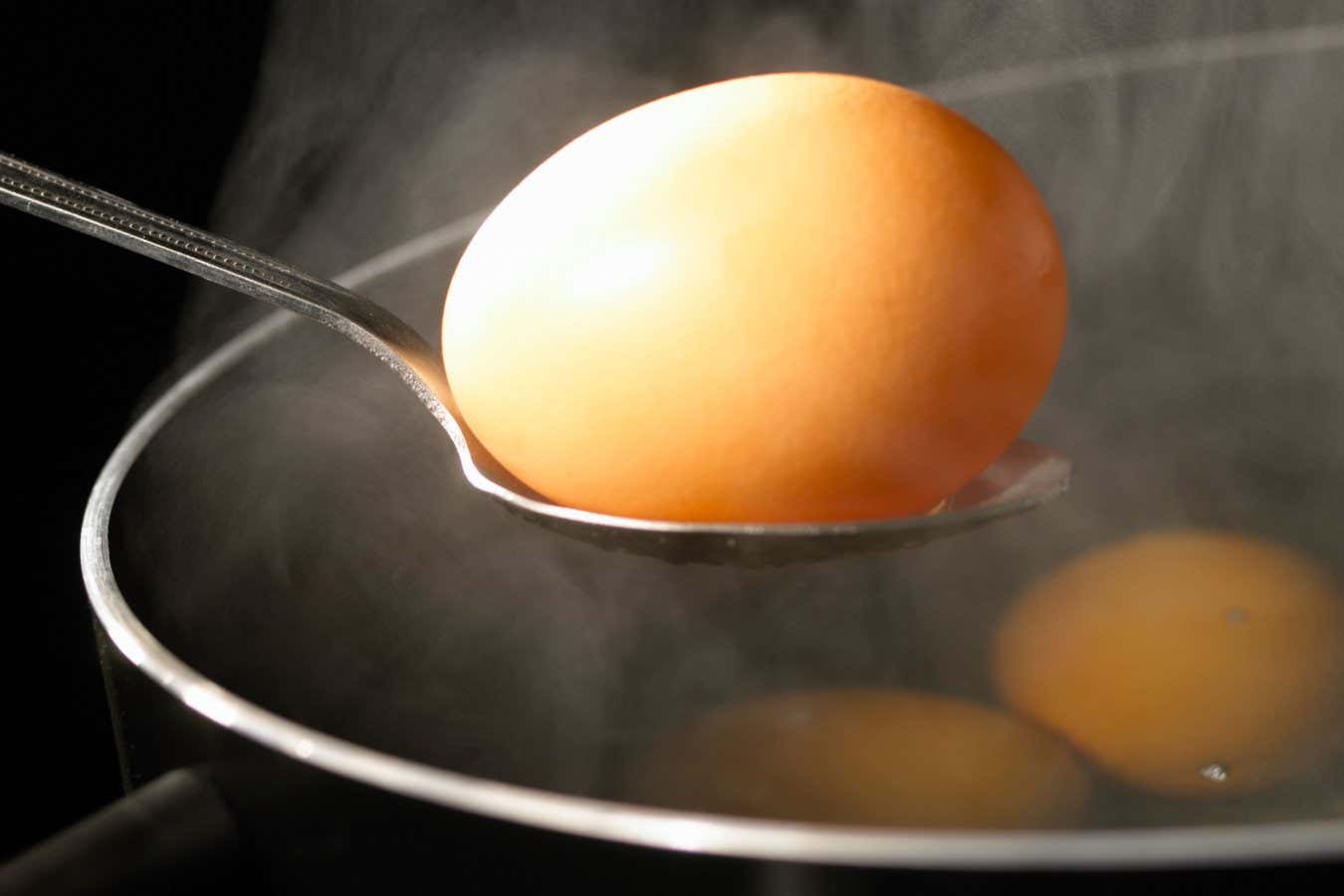If you have the patience to repeatedly switch an egg between a hot and a colder pan, you’ll be rewarded with an amazing taste and texture, say physicists
By Alex Wilkins
6 February 2025
How do you cook your eggs?
The Daniel Heighton Food Collection/Alamy
Cooking a perfect boiled egg takes at least half an hour, physicists have claimed, as they say the best method for a tasty and nutritious breakfast involves switching repeatedly between pans of different temperatures.
As anyone who has ever struggled to get an egg to their liking will know, an even boil is difficult because the yolk and white cook at different temperatures. Cooking at a vigorous boil works for the white, which requires temperatures of 85°C (185°F) for optimum consistency, but can also result in a hard yolk, which only needs 65°C (149°F). Chefs have found immersing the egg in a water bath at a steady temperature of between 60°C and 70°C (140°F and 158°F) can lead to better cooked yolks, but this sous vide method also risks an undercooked white.
Read more
Physicists discover the secret to perfect cacio e pepe pasta
Advertisement
Now, Ernesto Di Maio at the University of Naples, Italy, and his colleagues have found a better way to evenly boil an egg, by swapping it between boiling water and 30°C (86°F) water every two minutes for eight cycles, taking a total of 32 minutes.
“Many people have tasted [the egg cooked in this way], and they were amazed by the taste and the texture,” says Di Maio. “Yes, it takes more time than usual cooking, but I think if you love someone, you should invest your time to do something properly. This is how to properly do an egg.”
To develop this method, Maio and his team first created a model of how an egg cooks by calculating the way energy spreads from the shell to the centre over time, using two equations to describe this process. By solving these equations, they found that the best way to evenly cook it would be to alternate between two different temperatures, which allows the two parts to cook separately.
